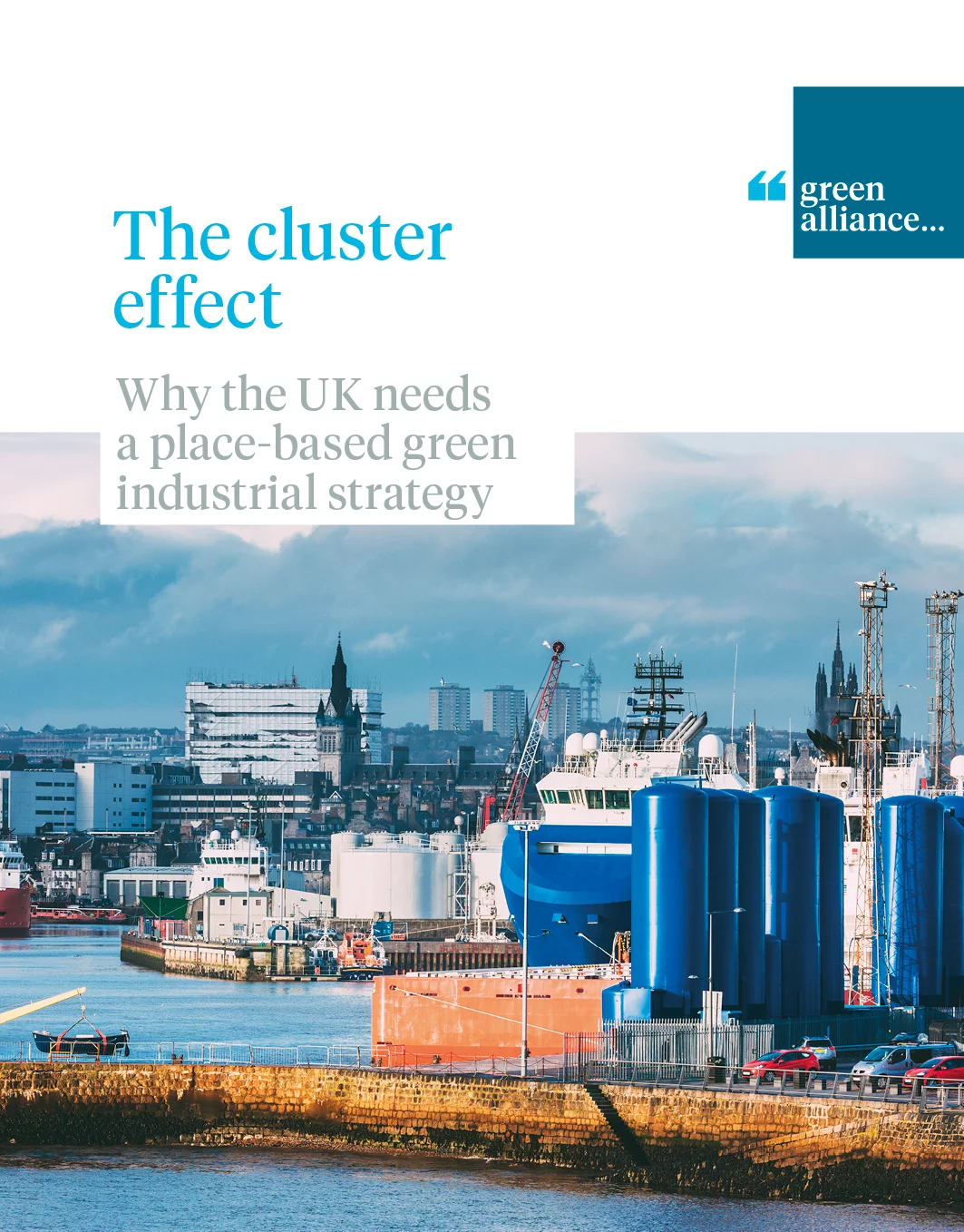Overview
Industrial strategy has a key role in helping polluting industries to decarbonise, while also developing the low carbon industries of the future in growth sectors like wind power, electric vehicles, hydrogen and advanced materials.
The US made significant investments in greening its industries through the Inflation Reduction Act, which was implemented under the Biden administration. China and the European Union continue to pursue similar strategies. The UK, with more limited resources, can still do a lot to help its green industries thrive by focusing on R&D, smart regulation and demand-side measures to encourage uptake of new, cleaner technologies.
With the UK’s industrial strategy expected later in 2025, there is a timely opportunity to strengthen the nation’s approach to sustainable industrial development. As this strategy takes shape, our work will encourage and support the government to prioritise effective decarbonisation pathways while supporting economic growth and innovation in green industries.
Publications
In this briefing, we explain the complexities of the Port Talbot job losses, highlight the importance of decarbonisation for UK industry and provide recommendations to mitigate risks and support a smooth transition to low carbon manufacturing.
In this briefing, published in October 2024, we set out our initial recommendations on the sectoral focus for the upcoming industrial strategy, and the horizontal and governance structures needed to make it work.
In this report, published in September 2023, we consulted industry stakeholders to find out what is holding back growth in the UK battery industry supply chain. We conclude that a national battery strategy is required imminently and propose what it should include.
The UK steel industry is going through a critical transition. In this report, published in August 2023, we model the future UK market for steel, showing its potential to grow and how much of it will come from new net zero needs.
In this report, published in June 2023, we demonstrate that a place-based industrial strategy is the most efficient way to reach net zero while widening economic prosperity across the country. We recommend a package of policy tools government can use to address the constraints holding regions back and provide targeted support to meet the needs of new green industries.
In this report, published in May 2022, we indicate how driving forward the net zero carbon economy can help to reverse the UK’s flagging productivity, contribute to economic growth and provide skilled jobs.
Blogs and podcasts

In this episode, Steve Coulter, Green Alliance’s head of economy, speaks to experts about why the UK is crying out for a green industrial strategy.
The government has an ambitious agenda for economic renewal, with impressive sounding new institutions and programmes like Great British Energy (GBE) and the National Wealth Fund (NWF), albeit with truncated budgets. In this blog, published in August 2024, Steve Coulter, head of economy, discusses how bold the Labour government will be on industrial strategy.
The manufacturing sector’s intentions to reduce its emissions are going from strength to strength, despite the Conservative government’s attempts to dial down the importance of reaching net zero. In this blog, published in December 2023, Faye Skelton, head of policy at Make UK, discusses the need for a long term strategy to drive progress.
Green industrial growth is not only about switching car making to EVs, accelerating renewables and developing new areas such as batteries, it is also about decarbonising existing heavy industries. In this blog, published in December 2023, Matthew Lockwood, senior lecturer in energy and climate policy at SPRU, discusses why industrial decarbonisation in the UK requires not just financial investment but also effective policy coordination and long-term funding predictability.
UK business leaders and commentators have long bemoaned the lack of an industrial strategy to drag the country out of its economic torpor and into a new era of AI-enabled, green prosperity. In this blog, published in December 2023, Steve Coulter, head of economy, discusses why the UK needs a coherent and ambitious industrial strategy to overcome economic stagnation and compete globally in green industries.


